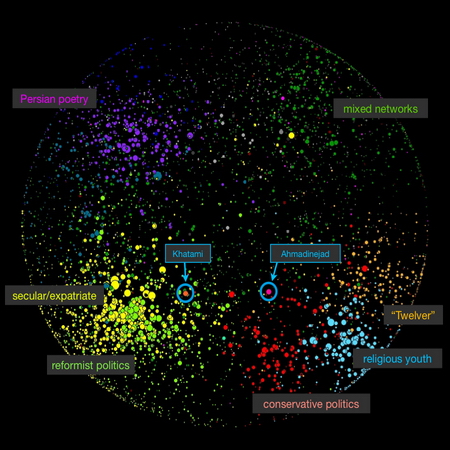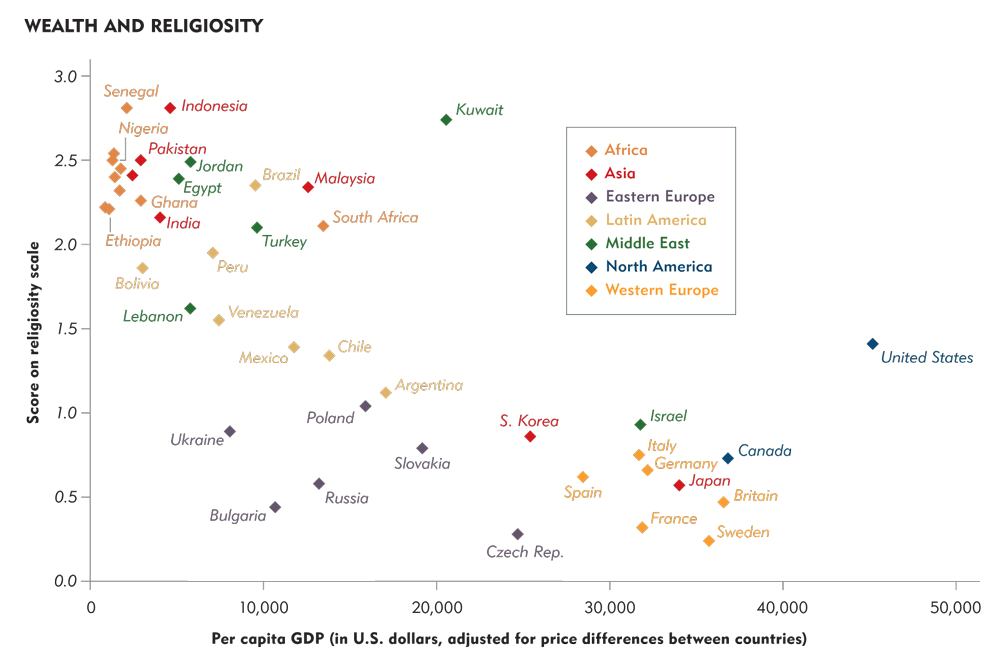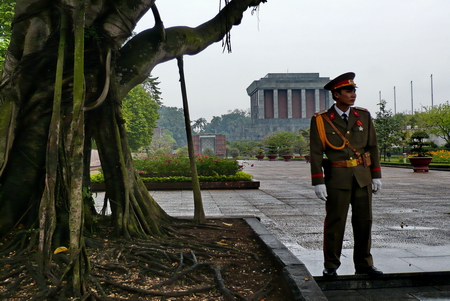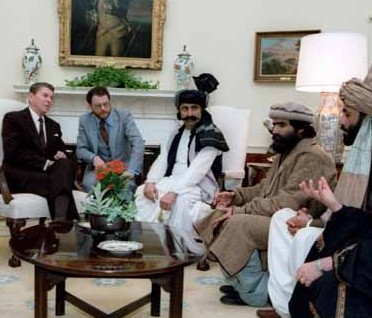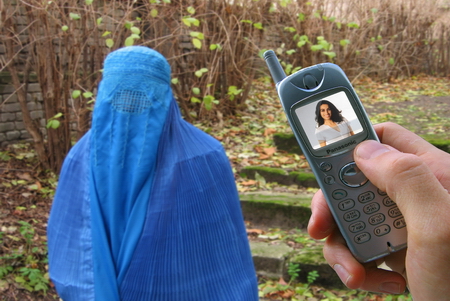Wie sollen wir mit eingewanderten arabischen Worten umgehen – wie etwa Dschihad, Hidschab, Fatwa? Sollen wir sie übersetzen? Aber wie? „Anstrengung“? „Bedeckung“? „Gutachten“? Oder sollen wir sie stehenlassen, um das Fremde der mit ihnen verbundenen Konzepte zu betonen.
Besonders knifflig ist die Sache bei Allah. Ist das nun die Gottheit, zu der die Muslime beten – darum Allah als Eigenname? Oder sollen wir schlicht „Gott“ dazu sagen?
Eine nachdenklich Glosse aus der LA Times:
„In Arabic, Muslims, Jews, Christians and Zoroastrians all pray to Allah. In English, however, Christians and Jews pray to God, and Allah is the Muslim deity. No one would think of using the word „Allah“ to talk about any other religion. The two words, „God“ and „Allah,“ do not mean the same thing in English. They should.
This isn’t about political correctness; it isn’t about language distortion. Altered or incomplete usage of words is natural, even amusing. „Confetti“ in its original language means little bonbons or small sweets. And incomplete usage is at times explainable and logical. The words „beef,“ „pork“ and „mutton“ arrived with the Norman invasion. They refer solely to the meat, never to the animal, whereas in the original French they refer to both (mouton is both sheep and mutton). That is primarily because French was integrated into the language of the upper classes, which ate the meat, and less so that of the farmers, who raised the animals.
God, however, is a big deal. The word for God matters quite a bit more than what lands on one’s table for dinner at night. We never say the French pray to Dieu, or Mexicans pray to Dios. Having Allah be different from God implies that Muslims pray to a special deity. It classifies Muslims as the Other. Separating Allah from God, we only see a vengeful, alarming deity, one responsible for those frightful fatwas and ghastly jihads — rarely the compassionate God. The opening line of every chapter in the Koran is „Bi Ism Allah, Al Rahman, Al Rahim„: In the name of God, the Gracious, the Merciful. In the name of Allah. One and the same.
The separation is happening on all sides. This year, the Malaysian government issued an edict warning the Herald, a weekly English newspaper, that no religion except Islam can use the word Allah to denote God. No such edict, or fatwa for that matter, is needed for the New York Times: a quick search through the archives shows that Allah is used only as the Muslim God.
In these troubled times, creating more differences, further parsing so to speak, is troubling, even dangerous. I suggest we either not use the word Allah or, better yet, use it in a non-Muslim context.
Otherwise, the terrorists win.“
